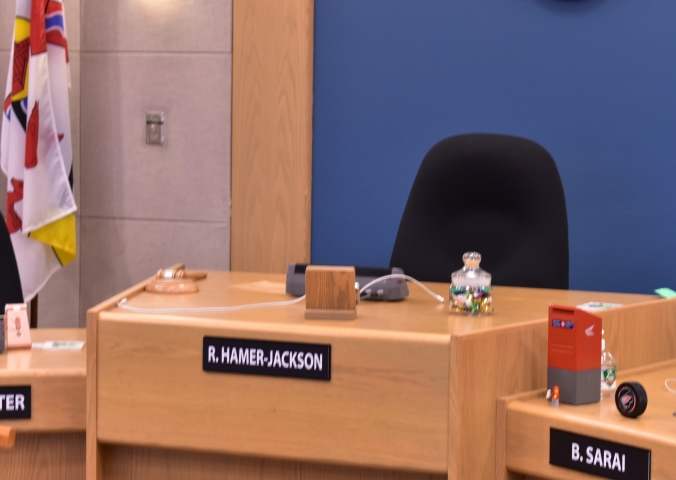Elevate your local knowledge
Sign up for the iNFOnews newsletter today!
Sign up for the iNFOnews newsletter today!
Selecting your primary region ensures you get the stories that matter to you first.

The province made a misstep when it introduced new rules for policing conduct in BC’s city and town halls.
That according to BC Conservative MLA and municipal affairs critic Tony Luck, who said he has heard from mayors and councillors around the province wanting to avoid anything similar to what Kamloops has faced since the municipal election in 2022.
“It’s a real shame what’s going on there,” the Fraser-Nicola MLA told iNFOnews.ca.
He stopped short of casting blame on Mayor Reid Hamer-Jackson or anyone else on council.
“Certainly if we had stronger legislation and governance model in the Local Government Act or the Community Charter, we should be able to nip that in the bud a lot sooner than we do, because otherwise our cities become jokes, and that’s not what we want moving forward,” Luck said.
After the 2022 municipal elections, every council in BC was required to at least consider crafting their own codes of conduct for the first time. Though it came with guidelines, it left each community to police themselves.
The requirement likely came just in time for Kamloops, where Hamer-Jackson has been on the receiving end of dozens of investigations through internal conduct rules, privacy law and WorkSafeBC. He continues to challenge their legitimacy and refuses to comply with enforcement as compounding punishments set him on a path toward earning an income below the province’s minimum wage.
Earlier this year, former municipal affairs minister Ravi Kahlon said the province will introduce new oversight measures, but it won’t be in effect before next year’s election and it’s not clear what form they will take. He has been replaced with Christina Boyle, who reiterated that message when reached for comment by iNFOnews.ca.
“While we haven’t finalized changes, our goal remains the same: to ensure local governments are focused on serving their communities,” she said in a written statement.
The ministry is planning to discuss a provincial code of conduct model with local governments in the coming months and both mandatory policies and updated enforcement procedures are on the table, Boyle said.
Luck said before the government abolished the Auditor General for Local Government in 2020, it focused on spending. He said if the auditor was brought back, the role could be expanded to include conduct.
He went on to question why the province introduced codes of conduct with a “soft sell,” but then moved to overhaul zoning policies and local decisions over land use.
“In some cases, we want to shove zoning and housing bylaws down the throats of councils, but we don’t want to make them comply with ethics legislation? I don’t understand,” Luck said.
BC is the only province that doesn’t require all municipalities to adopt a council code of conduct, but that doesn’t mean there’s consistency across the country.
Ontario appears to have been the first, when that province mandated the adoption of a code of conduct in 2001. Other provinces started to follow suit more than a decade later. With one exception, they don’t require a standardized set of rules and largely leave municipalities to police themselves.
Quebec established a commissioner to investigate complaints and enforce code of conduct rules in 2022. Now others are considering the same.
Proposed changes in Ontario would standardize the rulebook across local governments, launch a commission to oversee investigations and even add the potential of firing a mayor or councillor. Alberta is also considering similar changes to standardize and oversee complaints where some municipal officials have been accused of weaponizing the current process against their political rivals.
— This story was updated at 5 p.m., Aug. 22, 2025. A previous version incorrectly stated the Ministry of Municipal Affairs did not respond to a request for comment.
News from © iNFOnews.ca, . All rights reserved.
This material may not be published, broadcast, rewritten or redistributed.

This site is protected by reCAPTCHA and the Google Privacy Policy and Terms of Service apply.
Want to share your thoughts, add context, or connect with others in your community?
You must be logged in to post a comment.